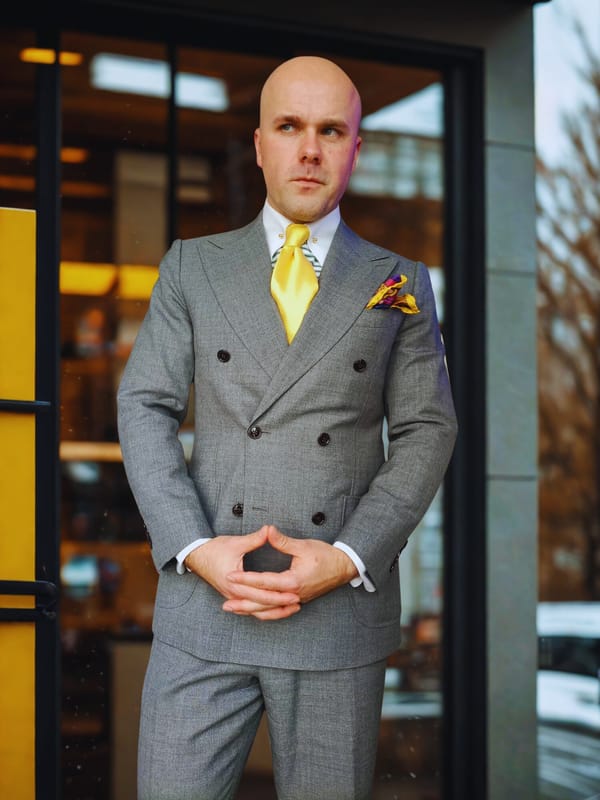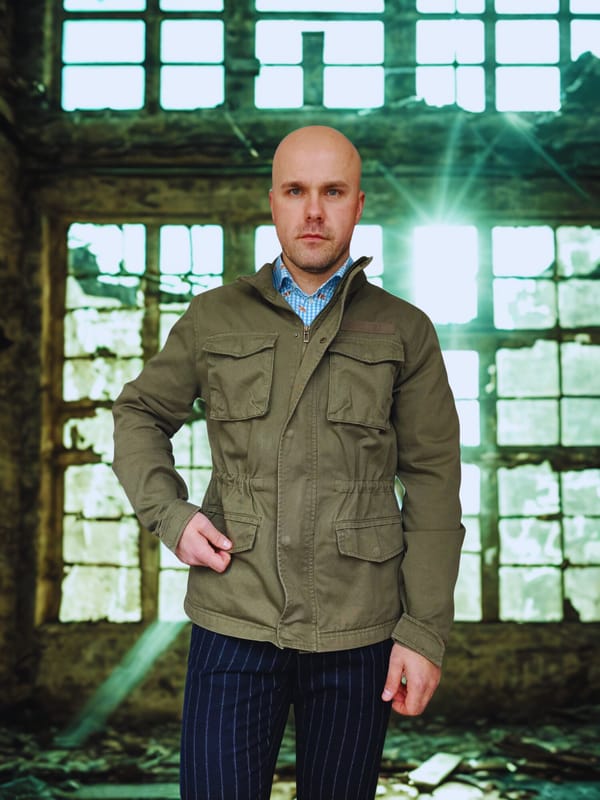If Only...” — A Reflection on Regret, Career, and the Roads Not Taken

“Of all sad words of tongue or pen, the saddest are these: It might have been.”
— John Greenleaf Whittier
Regret is the quiet ache we often carry in our back pocket — invisible, but always there. It doesn’t scream. It whispers. It walks with us, shows up in reflective moments, and sometimes, when the night is quiet, it shouts.
What Is Regret, Really?
In psychological terms, regret is defined as a negative cognitive or emotional state involving blame, disappointment, or sorrow over a past decision or action. It’s often accompanied by counterfactual thinking — the mental gymnastics we perform when we ask, “What if I had done it differently?”
Unlike guilt, which focuses on moral failings, regret can exist even when we didn’t technically do anything wrong. And it tends to cluster around two domains: relationships and career choices.
Let’s talk about the second — and sprinkle in the first.
The Career That Got Away.
Ask anyone over 40 if they would have made the same career decisions again, and you’ll likely hear a sigh before an answer. Many people stay in jobs they don’t love because they felt they had to. Or they pursued what was safe instead of what was meaningful.
If I had listened to myself earlier, I might have pursued art instead of finance.
If I had taken that opportunity abroad, maybe I would have grown more.
These are third conditional thoughts — expressing regret about missed chances. They serve as a mental time machine, but unfortunately, they can’t rewrite history.
What they can do, however, is inform future choices.
Should Have, Would Have, Could Have.
Should have implies duty.
Would have implies possibility.
Could have implies capability.
And yet none of them changes the past.
So why do we dwell on them?
According to research by psychologist Neal Roese, regret has adaptive value — meaning it helps us learn. But only if we use it. When regret becomes chronic, it can morph into rumination, which is mentally destructive and linked to anxiety and depression.
That’s why the key question isn’t “What do you regret?” but “What have you done with your regrets?”
Beyond Career: The Personal “What Ifs”
Career choices are usually made under pressure — from family, finances, fear. But relationship regrets often feel more personal. Not telling someone how we felt. Not apologizing. Choosing comfort over connection.
If I had expressed how I truly felt, maybe we wouldn’t have drifted apart.
These regrets are different because they often involve inaction, which research shows we regret more in the long run than the things we did do — even if those were mistakes.
Making Regret Useful.
It’s tempting to say, “No regrets,” and post it on a T-shirt or tattoo it on your wrist. But that’s often bravado. Regret is normal, and sometimes even necessary.
Here’s how to use it:
1. Name It.
Get specific. “I regret not applying for that job” is better than a vague, “I regret my whole career.” Precision brings clarity — and clarity brings choice.
2. Look for the Lesson.
What conditionals pop into your head? If I had studied something different, I might have been happier.
Ok — what does that tell you about what you value now?
3. Take a Micro Step.
Regret often stems from feeling stuck. Do the smallest possible action that moves you closer to something better. Enroll in a course. Send that email. Start writing again.
If I start today, in a year I could be somewhere entirely new.
That’s a first conditional — the language of hope and action.
The Wisdom of the Road Not Taken.
Philosopher Søren Kierkegaard once wrote, “Life can only be understood backwards; but it must be lived forwards.”
We will never stop wondering about the other paths. But we can stop punishing ourselves for not taking them.
What if — instead of feeling broken — we saw our regrets as maps? They highlight the places we missed and show us where to go next.
A Word on Late Bloomers.
Many people feel they’re too late to change. They think, “If I had started earlier, I’d be better by now.” But that’s just your mind recycling regret into defeat.
If you start now, you will be better in a year. That’s not regret — that’s momentum.
Countless people — artists, writers, teachers, entrepreneurs — made their moves after 40. Their secret? They used their regrets as fuel, not a cage.
Final Thought.
Regret, for all its bitterness, is proof that you care. That you’re thinking. That you’re awake.
We don’t regret what didn’t matter. We regret what did — and that’s a sign of humanity, not failure.
So don’t silence your regrets. Sit with them. Listen. And then… move.
Because if you do something different tomorrow,
you’ll no longer say, “If only…”
You’ll say, “Good thing I did.”
Glossary – Regret, Careers & Conditionals (Simplified List)
- Regret – Feeling sad about something you did or didn’t do.
- Counterfactual thinking – Thinking about how things could have been different.
- Career choice – The job or work path you choose.
- Third conditional – Grammar to talk about imaginary past situations. (If I had studied, I would have passed.)
- First conditional – Grammar to talk about real future possibilities. (If I study, I will pass.)
- Should have / Would have / Could have – Phrases for things you wish you had done differently.
- Chronically – Happening again and again over a long time.
- Rumination – Thinking too much about something in a negative way.
- Guilt – Feeling bad because you believe you did something wrong.
- Inaction – Not doing anything when action was needed.
- Missed chances – Opportunities you didn’t take.
- Clarity – Clear understanding.
- Lesson – Something useful you learn from an experience.
- Micro step – A very small action to move forward.
- Momentum – Energy that helps you keep going.
- Philosopher – A person who thinks deeply about life.
- Wisdom – Knowledge and good judgment from experience.
- Late bloomer – Someone who succeeds later in life.
- Fuel (figurative) – Something that gives you energy or motivation.
- Cage (figurative) – A mental or emotional trap.
- Humanity – The emotional and thinking part of being human.
- Sit with (your regret) – Take time to feel and think about regret.
- Wake-up call – A moment that makes you realize something important.
- Course correction – Changing direction to fix a mistake.
- Meaningful – Full of purpose or importance.
- Default setting – Your usual way of thinking or acting.
- Actionable – Something practical you can do.
- Slightly philosophical – A little deep or thoughtful, but still clear.
🧠 Grammar Bits: Conditionals & Modals in the Past
🔷 1. Third Conditional – Imaginary past regrets
🔹 Structure:
If + past perfect, would have + past participle
🔹 Use: To talk about something that didn’t happen, and how the result would be different.
Examples from the essay:
- If I had listened to myself earlier, I might have pursued art instead of finance.
- If I had taken that opportunity abroad, maybe I would have grown more.
- If I had studied something different, I might have been happier.
✅ Third conditional is the go-to for expressing regrets or missed chances.
🔷 2. First Conditional – Real future possibilities
🔹 Structure:
If + present simple, will + base verb
🔹 Use: To talk about something that could really happen in the future.
Example from the essay:
- If you start today, in a year you could be somewhere entirely new.
✅ Used for taking action and making better choices going forward.
🔷 3. Modals in the Past – Could have, Should have, Would have
🔹 Structure:
Modal (could/should/would) + have + past participle
🔹 Use: To express possibility, advice, or intention about past actions.
Examples from the essay:
- I should have studied something different.
- I could have been happier in another job.
- You would have enjoyed it if you’d taken the chance.
✅ This structure is very common in reflective or emotional language.
🗣️ Speaking Questions
- What is one career decision you regret, and what would you have done differently?
- If you had a second chance to choose a degree or profession, what would it be? Why?
- Have you ever taken a risk that didn’t work out? Was it better than doing nothing?
- Do you think people regret things they did more or things they didn’t do? Why?
- What advice would you give your younger self about regret or taking chances?
- If you start something new today, what might your life look like a year from now?
- Is it possible to live without regret? Or is regret part of learning?



